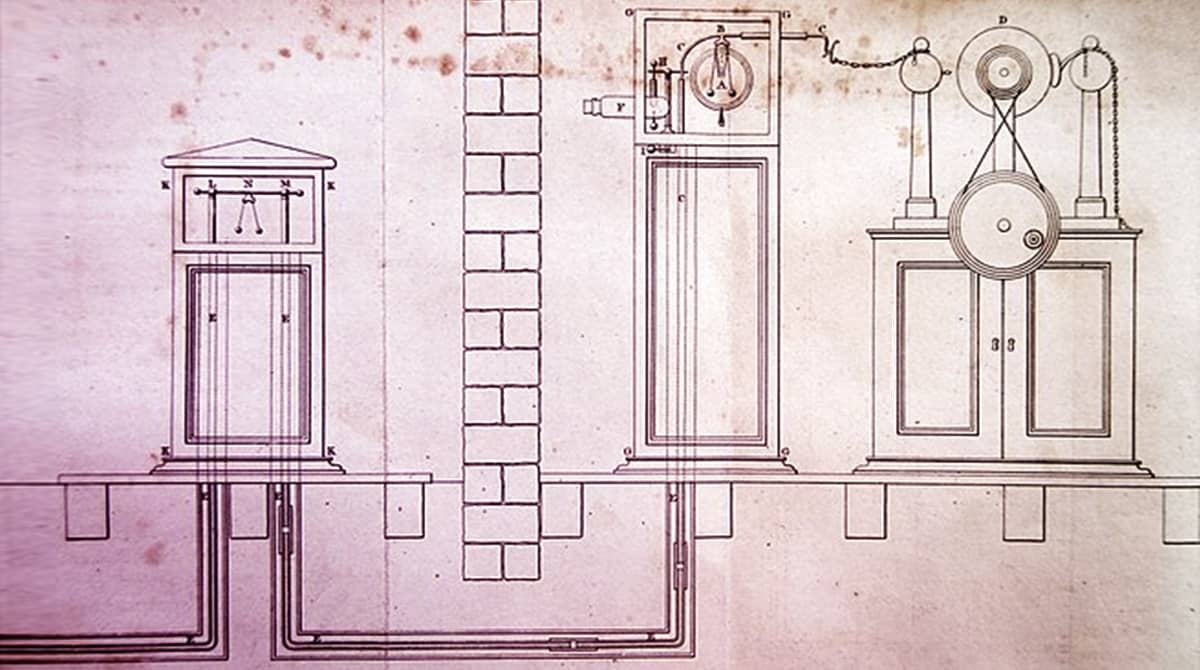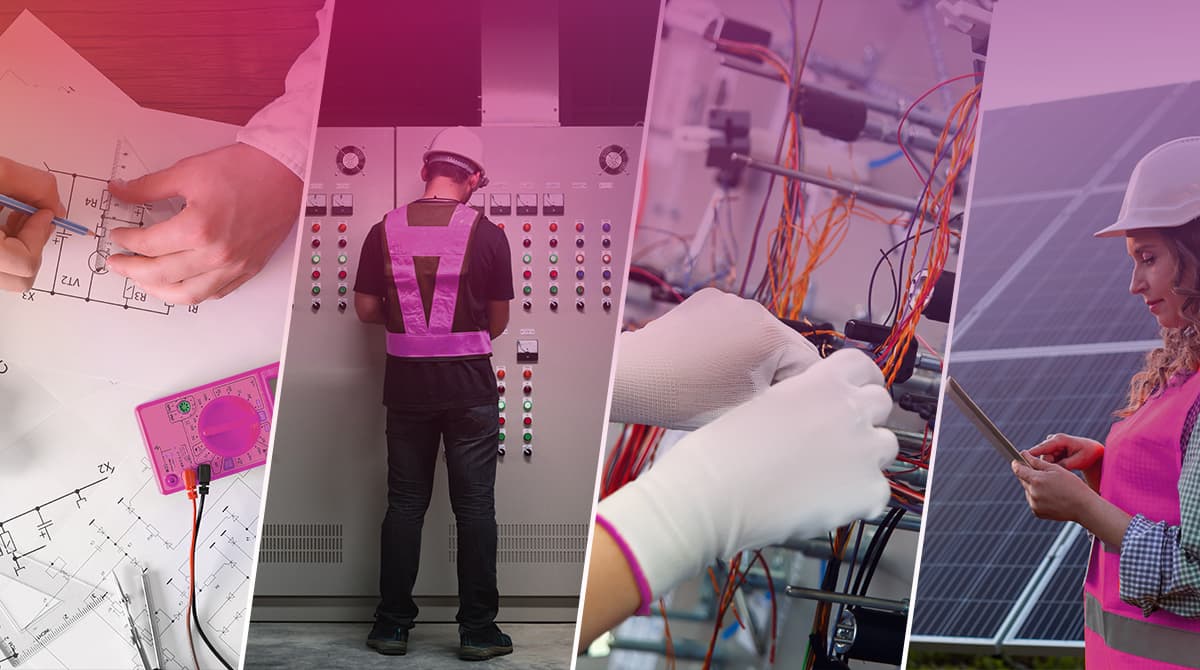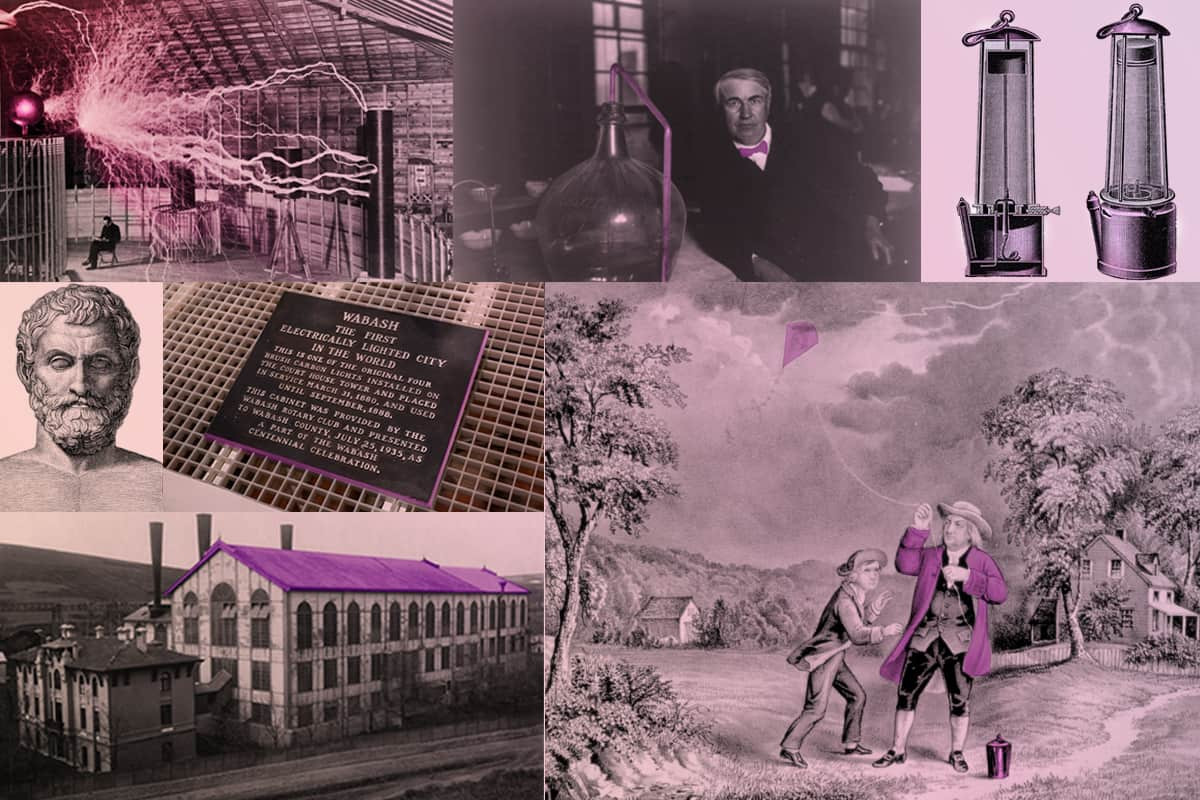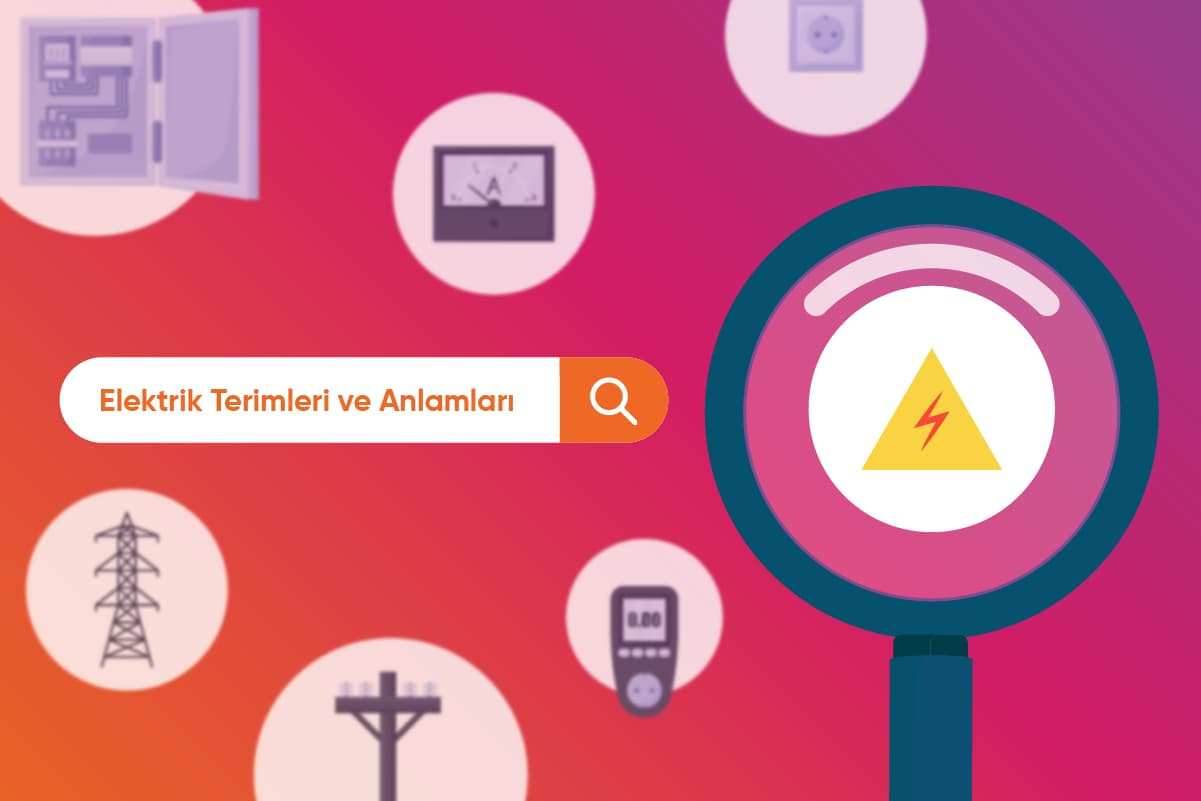
What Are the Areas of Profession for an Electrical Engineer? Responsibilities of an Electrical Engineer
What is in this article?
Electrical engineering is one of the professions that are most wondered about and often preferred by people planning their career. This profession, offering job opportunities in both the private sector and governmental agencies, may also be considered an opportunity to work abroad. Additionally, any willing people may start their own engineering company.
What job do electrical engineers do? Which areas offer opportunities to work? The answers to all these questions are provided in our blogpost, especially for those willing to make career planning in this field. Happy reading!
Who Is an Electrical Engineer?
An electrical engineer is a person who deals with every practical application of electricity. Electrical engineering conducts applied research on power generation and electricity. It also carries out the design, field testing and manufacturing inspection and testing of any necessary devices, equipment and system for power generation. In addition, it is a very comprehensive engineering discipline that develops quality control standards.
An electrical engineer may work in fields such as power generation and distribution. In other words, electrical engineers are actually responsible for all phases of power production from the moment it reaches the power outlet for use. Power generating devices such as generators or engines of new generation electric vehicles are designed by electrical engineers. Additionally, electrical systems are still drawn and approved by electrical engineers in construction projects.
Electrical engineers can also become SCADA engineers by improving themselves using the SCADA software. SCADA refers to Supervisory Control and Data Acquisition. A SCADA system allows the facilities distributed over a large area to be monitored, observed and managed by devices such as computers from a designated center. The person who installs, maintains and repairs this system and provides other necessary technical support is a SCADA engineer.
Are Electrical Engineering and Electronics Engineering the Same?
 While electrical engineers and electronics engineers often do similar jobs, those two disciplines are different from each other. Electrical engineering is a broader field than electronics engineering. An electrical engineer deals with different areas, such as power systems and communications, unlike an electronics engineer. On the other hand, electronics engineering focuses more on the design and retrofitting of electronic devices.
While electrical engineers and electronics engineers often do similar jobs, those two disciplines are different from each other. Electrical engineering is a broader field than electronics engineering. An electrical engineer deals with different areas, such as power systems and communications, unlike an electronics engineer. On the other hand, electronics engineering focuses more on the design and retrofitting of electronic devices.
Basically, electronics engineering is an engineering field oriented by the generation and distribution of electric power. In addition, electronics engineering focuses on the transmission of electric power through mechanical equipment and the proper travel of power from one device to another. Electronics engineers are responsible for the design and maintenance of any electronic equipment, such as components and circuits of computers, etc.
You can see the difference between an electrical engineer and an electronics engineer through the smart phone example. An electronics engineer design and assemblies the components of the phone. An electrical engineer, on the other hand, converts the digital data produced by this phone into signals. While both engineers actually design professional software and equipment, the scope of their duties varies. Electrical engineering is a more specific field than electronics engineering.
Electrical engineers design, test and inspect a number of specific equipment and systems as well as large-scale electrical projects. Electric motors, electrical systems in vehicles and on aircrafts, and electricity-generating devices and systems are covered by electrical engineering. In addition, an electrical engineer may develop new methods of energy use to reduce costs or increase efficiency and improve infrastructure processes.
Unlike an electrical engineer, an electronics engineer deals with the design and development of electronic equipment for scientific, medical, industrial, commercial or military purposes. For example, an electronics engineer designs the internal circuits of electronic goods, such as television, satellite, mobile phones, GPS devices, radar systems, and makes card drawings.
The other difference between these two engineering fields is the signing authority.
This practice, known as the Signing Authority, is actually an independent chartered engineering (ICE) service. An independent chartered engineer is entitled to develop an electrical system plan, improve maintenance procedures, provide safety standards, and advise on modifications for better performance. ICE certified electrical engineers who assume the responsibility for their works and services may secure 3 different signing authorities:
1. Elevator ICE certificate: Required for elevator services.
2. ICE certificate for electrical installations below 1 kV: This certificate allows for the execution of contracts for voltage projects below 1000 V, such as grounding measurement, consultancy and internal installation projects.
3. ICE certificate for electrical installations above 1 kV and below 1 kV: This certificate grants the authority to sign any projects of all voltage levels.
Electronics engineers may only be entitled to two ICE certificates. The ICE certificate for electrical installations above 1 kV and below 1 kV also includes high voltage projects. Electrical engineers are entitled to this certificate. Because electrical engineers study electrical machines, transmission systems, distribution systems, power systems, energy systems, electrical installations, protection and high voltage techniques as part of their undergraduate education.
If electronics engineers have taken these courses or at least three courses with the same content but under a different topic during the undergraduate education, they can also be awarded the ICE certificate for high voltage projects. For this, the transcripts of electronics engineers are examined to see if they have taken these courses.
History of Electrical Engineering
It can be said that 1864 was the time when electrical engineering emerged as a discipline for the first time. In 1864, the Scottish physicist James Clerk Maxwell outlined the basic laws of electricity mathematically. On the other hand, the telegraph invented by Samuel F.B. Morse in 1837 marks the first practical application of electrical engineering.
-
First Electrical Engineer in History
While it is difficult to indicate a person as the first electrical engineer in history, it is recognized that the first electrical engineer was Sir Francis Ronalds. The British scientist worked in a large number of fields, such as electrical, meteorology, photography and optics. The reason why Ronalds is referred to as the first electrical engineer is his invention of another variety of electrical telegraph in 1816 before Samuel F.B. Morse's invention. Although Ronalds presented this invention to the British Navy Forces, the telegraph was rejected as it was considered to be unnecessary. After several years, Morse would invent an electrical telegraph using a different operating system in a totally new continent.

What Is the Required Training for Becoming an Electrical Engineer?
The key qualification sought in people who want to be an electrical engineer in Turkey is graduation from the electrical engineering department of a university. No educational qualification other than this is required. However, it is mandatory to take the Public Personnel Selection Exam (KPSS) to work as an electrical engineer in governmental agencies.
People who want to be an electrical engineer should pay attention to the departments when choosing a university for their undergraduate education.
While many Turkish universities have the electrical-electronics engineering faculty, a relatively small number of universities have an individual Electrical-Electronics Faculty.
In Which Areas Can an Electrical Engineer Work?
Electrical engineers have the opportunity to work in many industries both at home and abroad. It is possible to find a job in different positions, such as engineer, consultant or director. Electrical engineers who want to work in governmental agencies can work in the Ministry of Science, Industry and Technology, Ministry of Health, Ministry of Energy and Natural Resources, Ministry of Transportation, Maritime Affairs and Communications, and Ministry of Environment and Urbanization. Additionally, the governmental agencies where electrical engineers can work include the Scientific and Technological Research Council of Turkey (TUBITAK), Energy Market Regulatory Authority (EMRA), Information and Communication Technologies Authority (ICTA) and Undersecretariat of Defense Industry.
Electrical engineers who want to work in private organizations can still find a job in many different industries. The areas where electrical engineers can easily find employment opportunity are the defense and aerospace, communication and media and energy and automotive industries.
In addition, they can work in the medical, white goods and software and information industries. To give specific examples, an electrical engineer can work in many different worksites, such as nuclear power plants, construction companies or electric power plants.
Since the primary focus of electrical engineering is power generation, electrical engineers can work in power plants that generate electricity. In our country, electricity is generated using both fossil and renewable sources. Hydraulic, geothermal, wind, solar and biomass energies are used in power generation in Turkey. For this reason, an electrical engineer can find the opportunity to work in power plants that generate power from renewable sources.
In addition, coal and natural gas are still used actively for power generation today. Thermal power plants generating power using these energy sources are one of the worksites where electrical engineers can work. Lastly, the nuclear power plants in our country, whose installation is in progress and which converts nuclear energy into electric power, is the other worksite available to electrical engineers.
If a student studying electrical engineering may also continue their career as an academician upon request. Many Turkish universities have the electrical-electronics engineering department. Academicians are needed for lecturing in these departments. Additionally, electrical engineers may start their own technology companies in several industries if they wish to do so.

Responsibilities of and Key Facts About an Electrical Engineer
Having an extremely wide work area in their hands, electrical engineers have a large number of responsibilities. Responsibilities of an electrical engineer can be listed as follows:
- Design new systems, circuits or devices or work on the improvement of available technologies,
- Contribute to the retrofitting of electrical devices and equipment used in the systems for an increased performance,
- Identify the capacity and costs of necessary items for electrical systems,
- Build, install and test electrically-powered devices and equipment,
- Develop test and maintenance procedures for electrical devices and equipment,
- Inspect electrically-powered machinery and tools to make sure that they comply with the safety standards and regulations,
- Find new ways to use electric power to improve available products, and
- Prepare technical reports by following up product development processes.
How Do an Electrical & Electronics Engineers Improve Themselves?
It is of great importance for people to improve themselves to stand out in electrical engineering as in every field. Today, new information and discoveries have been unrevealed in the technology industry that is advancing more rapidly than ever before. Following the developments in the industry closely and having a good command of this field are the first steps to self-improvement.
In addition, people are advised to actively engage in student clubs especially during their undergraduate education. Student clubs that offer an great advantage for making friends and socialization also offer the opportunity to meet the prominent figures in the industry. It is also possible to gain experience with the projects carried out.
Those who are willing to improve themselves in electrical engineering can be awarded various certificates by attending courses and seminars in this field. It is also important to create a profile on professional and social business networks and improve relationships with contacts. On social business networks, people can directly contact the companies they want to work for. This enables people to seize many new opportunities of trainee programs and jobs. In addition, career expos are important events that should not be missed out for trainee program and job opportunities.
Students studying electrical engineering may also improve themselves by continuing their education life by taking master's or doctoral programs. Those who want to distinguished in the field should also speak English well. Learning different foreign languages, along with knowledge of English, may bring further benefits, which is important for having a good command of the sources written in a foreign language, especially when conducting research. Additionally, it is of importance to learn about software programs and software languages and have a vast knowledge of design programs and a good command of office programs.
What do you think about electrical engineering and electrical engineering department? You can share your thoughts with us in the comments.

 Online Services
Online Services Application Inquiry
Application Inquiry Pay Assurance Fee
Pay Assurance Fee Query Installation Number
Query Installation Number Compensation Fee Inquiry
Compensation Fee Inquiry Automatic Payment Order Inquiry
Automatic Payment Order Inquiry Partnership
Partnership







Leave a Comment